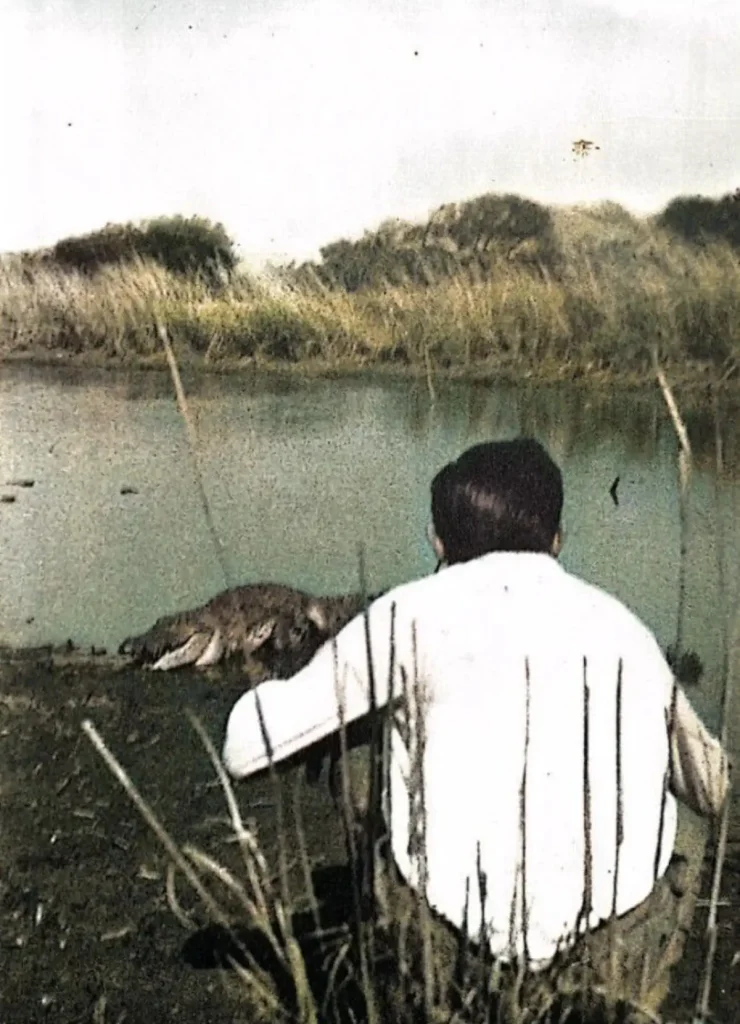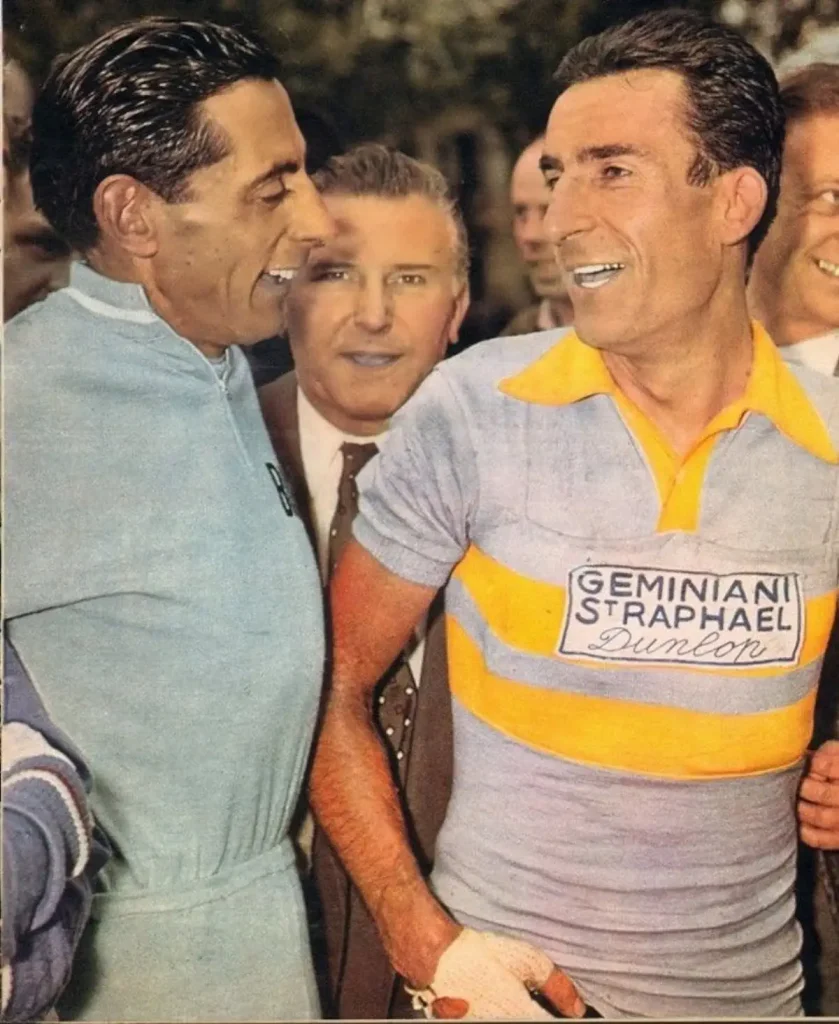The last photograph of Fausto Coppi as a healthy man was taken shortly before his tragic and premature death on January 2, 1960, 65 years ago. Captured during his stay in Africa, just 10 days before his passing, the image shows the ‘Campionissimo’ immersed in the wild, untouched nature. He is seen resting, with a curious gaze toward a crocodile not far from him.

The Tragic Final Days of a Cycling Legend: How Malaria Ended Fausto Coppi’s Remarkable Life
In December 1959, Fausto Coppi embarked on what would tragically become his final journey. He was invited by Maurice Yaméogo, the president of the Republic of Upper Volta (now Burkina Faso), to participate in a cycling exhibition against local riders and to join a hunting expedition. The event brought together legendary cyclists such as Jacques Anquetil, Louison Bobet, Raphaël Géminiani, Roger Hassenforder, and Henry Anglade.
During their stay, Coppi and Géminiani shared a room in a house teeming with mosquitos.
In his remarkable book Coppi: Inside the Legend of the Campionissimo, Herbie Sykes quotes Raphaël Géminiani recalling: “Because [Jacques] Anquetil was there with Janina, his wife, it was decided they would have the only mosquito net. Fausto and I shared the same room, and it was a pretty miserable night. It was as hot as hell, and the mosquitos were everywhere.”
“Coppi was swiping at mosquitos with a towel… I told him, ‘Do what I’m doing and get your head under the sheets; they can’t bite you there.’ But he said, ‘Porca miseria [Damn it], they’re eating me alive!'”
So, in that night, both men were bitten and unknowingly infected with plasmodium falciparum, one of the most lethal strains of malaria.
Upon returning to their respective homes, both men fell seriously ill. Géminiani experienced high fever, delirium, and misdiagnoses before eventually being treated successfully for malaria. He was taken to a hospital near his home in central France. By chance, the doctor who treated him had prior experience in Africa and was able to make the correct diagnosis. With a simple injection of quinine, he was cured.
Coppi, however, was not as fortunate. His doctors, unfamiliar with the disease, misdiagnosed his condition as a bronchial infection and failed to administer proper treatment. By the time the correct diagnosis was made, it was too late.

According to William Fotheringham’s book Fallen Angel: Fausto Coppi, after it was determined that Raphaël Géminiani had malaria, his brother, who spoke Italian, telephoned the clinic where Coppi was being treated and said, “They’ve found out what is wrong with Raphaël – he has malaria. So Fausto must have the same thing.” However, according to Géminiani, the doctor replied, “You deal with whatever your brother has; we will treat Coppi for what is wrong with him.”
Fausto Coppi succumbed to malaria on January 2, 1960, at the age of 40. The cycling world was plunged into mourning, and his death was reported with shock and disbelief. La Gazzetta dello Sport, Italy’s premier sports paper, published a special supplement, with the editor lamenting Coppi’s loss and expressing a heartfelt hope that another cyclist like him would one day emerge.
Coppi’s untimely death marked the end of an extraordinary life that had transcended cycling, elevating him to a mythic status. His passing also underscored the dangers of malaria, a disease still poorly understood in Europe at the time, and became a tragic reminder of the fragility of even the greatest champions.

Sources
- Fausto Coppi on Wikipedia
- “Coppi: Inside the Legend of the Campionissimo” by Herbie Sykes. Rouleur Limited, London, 2013.
- “Fallen Angel: The Passion of Fausto Coppi” by William Fotheringham. Yellow Jersey Press, London, 2009. The writer’s website
- “Fausto Coppi’s Mysterious Death” on the Road Bike Rider website
- UCI Elite Men Road Race World Champions: The Complete List [1927-2025] - September 28, 2025
- What Is Zone 2 In Cycling? - September 12, 2025
- The Turkish Flag at the Tour de France: Who’s Waving It at the Finish Line? - July 30, 2025

One reply on “Fausto Coppi in Africa [A Very Rare Photo]”
This was interesting, but almost inaccessible. There is no link behind
the “Continue” command box. Going to Source and moving up and down a little, then exiting w/o changes, seemed to wake things up and the entire story was made available.
It would round out the story to say what the cause of the subject’s death was, given that it followed so soon after the photo was taken.